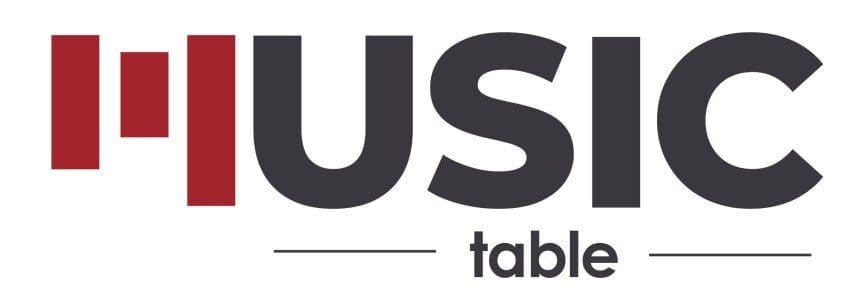Music Table is a vibrant online platform that has taken the Jewish music world by storm. This website is a one-stop shop for all things Jewish music, featuring a wide range of genres, artists, and albums. With its user-friendly interface and extensive music collection, Music Table has become a go-to destination for music lovers worldwide. In this article, we’ll explore the features of the Music Table website. We’ll discuss its selection of music downloads, interviews, and streaming services and examine what makes this Jewish music website so popular.
What is Music Table?

Music-Table.com is an online platform specialising in the world of Jewish music. It works to preserve, promote, and celebrate the unique and diverse sounds of Jewish music from around the world. The website is a treasure trove of musical gems, with a large selection of songs, albums, and artists that cater to multiple tastes and preferences.
Music Table offers a variety of Jewish music, including traditional, contemporary, and religious music. One of the unique features of Music-Table.com is its extensive collection of music from different Jewish traditions. Ashkenazi, Sephardic, and Mizrahi music are all represented.
Music Table is an excellent resource for anyone with an interest in Jewish music. Its extensive music collection, focus on quality, and user-friendly design make it an excellent choice for anyone exploring the world of Jewish music.
Music Table Services
Music Table offers a plethora of services designed to cater to the needs of both Jewish music enthusiasts and artists. Some of the key services provided by Music-Table.com include:
Music Streaming and Download
Music Table provides an easy-to-use platform for users to stream and download a wide variety of Jewish music. The website offers an extensive catalogue of albums and songs that cater to different tastes and preferences.
Interviews
Music Table features interviews and detailed profiles of Jewish music artists. The content helps fans to gain insight into the backgrounds, musical styles, and personal lives of their favourite artists.
Albums
Fans of Jewish music will find easy access to all the latest Jewish Music releases, with quick links to buy their favourite records.
Stream
Music Table includes links to the YouTube accounts of many of the top Jewish music artists. Visitors can use the site to quickly find all the latest music videos and live performances.
Artist Profiles
Music-Table.com features detailed profiles of Jewish music artists, providing fans insight into their backgrounds, musical styles, and achievements. These profiles help fans discover and connect with new artists and better appreciate their favourite musicians.
Premium
Premium Music Table users can access bonus content, including wedding songs, unofficial music clips, and additional interviews.
Music Table is not just a platform for music lovers; it’s also a valuable resource for Jewish music artists. The website provides a space for both established and emerging artists to showcase their talent and share their music with a global audience. It’s a vibrant community where artists and fans can connect and celebrate the rich and diverse world of Jewish music.
What Is Jewish Music?
Jewish music is a diverse and eclectic genre that encompasses a wide range of musical styles and traditions. At its core, Jewish music is an expression of Jewish people’s culture, history, and religious beliefs. It’s a rich tapestry of melodies, rhythms, and textures that reflect the unique experiences of the Jewish people throughout history.
Jewish music includes many styles and genres, such as liturgical, folk, klezmer, and contemporary Jewish pop music.
Liturgical Music

Jewish liturgical music has a rich and diverse history, spanning centuries and multiple cultures. It is an integral part of Jewish worship and enhances congregants’ spiritual experience. One of the earliest forms of Jewish liturgical music is cantillation, the chanting of biblical texts. This tradition dates back to ancient times and is still a common fixture in synagogues worldwide. Cantillation is a complex system of musical notation that guides the reader in the pronunciation and cadence of the text.
Another essential aspect of Jewish liturgical music is the use of nigunim, wordless melodies that enhance prayer and meditation. Nigunim are often sung repetitively to help the worshipper connect with the divine.
Throughout history, Jewish liturgical music has been influenced by the cultures and traditions of the communities in which it was practised. From the Sephardic melodies of Spain and North Africa to the Ashkenazi music of Eastern Europe, Jewish liturgical music reflects the diversity and richness of Jewish culture.
Today, Jewish liturgical music continues to evolve and adapt to modern times. Contemporary Jewish musicians are creating new forms of liturgical music that incorporate rock, folk, and other elements.
Folk Music

Jewish folk music is a rich and diverse genre that has evolved over centuries. It reflects the cultural and religious traditions of the Jewish people and has been influenced by the various regions where Jews have lived throughout history.
One of the earliest forms of Jewish folk music is klezmer music. Klezmer originated in Eastern Europe in the 16th century and was initially played by musicians at weddings and other celebrations. It’s characterised by lively, upbeat melodies and fast-paced rhythms and was often performed by small ensembles of musicians, including clarinet, violin, and accordion players.
In addition to klezmer music, Jewish folk music also includes a variety of other genres, such as Sephardic music, which originated in Spain and North Africa, and Mizrahi music, which developed in the Middle East. Sephardic music is known for its haunting melodies and intricate rhythms. In contrast, Mizrahi music typically uses traditional Middle Eastern instruments, such as the oud and the darbuka.
Jewish folk music has also been influenced by the various regions where Jews have lived throughout history. For example, in America, jazz and other popular music genres have influenced Jewish folk music. In Israel, Jewish folk music has been influenced by the country’s unique cultural and musical traditions.
Contemporary Jewish Pop Music
Contemporary Jewish pop music is a genre that has gained popularity in recent years, blending traditional Jewish themes and melodies with modern pop music styles. Jewish and non-Jewish audiences have embraced this type of music, and it has become a significant part of the Jewish music scene.
One of the most well-known contemporary Jewish pop artists is Matisyahu, who first gained fame in 2005 with his hit single “King Without a Crown”. He combines reggae, hip-hop, and rock music with lyrics that draw on his Jewish faith and spirituality.
Other famous contemporary Jewish pop artists include Avraham Fried, Yaakov Shwekey, and Benny Friedman.
Contemporary Jewish pop music often features lyrics that address Jewish themes such as faith, tradition, and community. Many of these songs feature Hebrew or Yiddish lyrics and incorporate traditional Jewish prayers and melodies. However, contemporary Jewish pop music also embraces modern themes and styles, with artists incorporating pop, rock, and hip-hop elements into their music.
History of Jewish Music
The history of Jewish music can be traced back thousands of years, with its roots deeply embedded in the Jewish people’s cultural and religious traditions. Over the centuries, Jewish music has evolved and adapted to the changing times and circumstances, resulting in a rich and diverse musical legacy.
One of the earliest forms of Jewish music is biblical cantillation, also known as the chanting of the Torah. This ancient practice dates back to the time of the Second Temple in Jerusalem and is believed to have been handed down through generations by oral tradition. A key characteristic of Cantillation is its unique melodies, which convey the meaning and emotions of the biblical text.
Another significant milestone in the history of Jewish music is the emergence of the klezmer tradition in Eastern Europe during the Middle Ages. Klezmer, which means “vessel of song” in Yiddish, is a genre of instrumental music traditionally performed at Jewish weddings and other celebrations. Klezmer musicians, known as klezmorim, would travel from town to town, entertaining audiences with their lively tunes and impressive improvisational skills.
Recent History
In recent times, Jewish music has continued to evolve and diversify, embracing a wide range of contemporary styles and genres. From classical compositions to jazz, pop, and rock, Jewish music artists have significantly contributed to the global music scene, leaving an indelible mark on the music world.
Famous Jewish Music Artists and Their Contributions
Over the years, numerous Jewish music artists have significantly impacted the global music scene. These talented musicians have contributed to the rich tapestry of Jewish music and helped shape the broader musical landscape.
Debbie Friedman
Known as the “mother of contemporary Jewish music,” Debbie Friedman was a singer-songwriter who revolutionised Jewish music in the 1970s and 80s. She is best known for her original compositions of traditional Jewish prayers, such as “Mi Shebeirach” and “L’chi Lach.”
Shlomo Carlebach
Shlomo Carlebach was a rabbi, singer, and songwriter considered one of the most influential Jewish musicians of the 20th century. His music blended traditional Jewish melodies with modern folk and rock styles, and his lyrics often focused on spirituality and social justice.
Yitzchak Meir Helfgot
Yitzchak Meir Helfgot is a renowned cantor who has performed at many prestigious venues, including Carnegie Hall and the Metropolitan Opera. He is famous for his powerful voice and ability to convey deep emotion through his music.
Craig Taubman
Craig Taubman is a singer-songwriter who has produced numerous albums of Jewish music. He is known for his upbeat and contemporary style, and his music often incorporates pop, rock, and world music elements.
Neshama Carlebach
Neshama Carlebach is the daughter of Shlomo Carlebach and has continued her father’s legacy of blending traditional Jewish music with contemporary styles. She has released several albums of original music and has performed at venues around the world.
Giora Feidman
Born in Argentina, Feidman is one of the most well-known klezmer clarinettists. He has performed with many famous orchestras and musicians and has released numerous albums.
Dave Tarras
Known as the “King of Klezmer,” Tarras was a Ukrainian-born clarinettist who immigrated to the United States in the early 20th century. He played with some of the most famous klezmer bands of his time, and his music continues to be influential today.
Naftule Braindwein
Another famous klezmer clarinettist, Brandwein was born in Ukraine and immigrated to the United States in the early 20th century. Fans of the genre celebrated his virtuosic playing and his ability to blend traditional klezmer music with jazz and other styles.
The Klezmatics
This New York-based band has been performing since the 1980s and has won numerous awards for their innovative approach to klezmer music. They have collaborated with many famous musicians and have released over a dozen albums.
Andy Statman
Statman is a multi-instrumentalist famous for his unique blend of klezmer, bluegrass, and jazz. He has recorded with many famous musicians and has released several albums of his own.
The Role of Music Table in Promoting Jewish Music
Music Table is pivotal in promoting Jewish music and supporting Jewish music artists. The platform’s extensive collection of Jewish music ensures the preservation and celebration of this rich musical heritage. By providing an accessible and user-friendly platform for music enthusiasts, Music Table helps to broaden the reach of Jewish music and foster a deeper understanding and appreciation of this unique genre.
For Jewish music artists, Music Table is a valuable resource and platform for showcasing their talent and connecting with fans. By featuring artist profiles, event calendars, and news updates, the website helps to bridge the gap between artists and their audiences, fostering a sense of community and collaboration within the world of Jewish music.
Moreover, Music Table is instrumental in supporting emerging Jewish music artists. By providing a space for these talented musicians to share their work and gain exposure, the platform helps to nurture and develop the next generation of Jewish music artists. This ensures the continued growth and evolution of the diverse and vibrant genre.
The Future of Music Table and Jewish Music
The future of music-table.com and Jewish music looks bright and promising. Music Table will likely play an increasingly significant role in preserving, promoting, and celebrating Jewish music. By fostering a sense of community and collaboration, the platform is contributing to the development and enrichment of the Jewish music scene.
As for Jewish music, the genre is continuing to evolve and diversify as new artists and influences emerge. With the fusing of traditional Jewish music with contemporary styles, the rich tapestry of Jewish music remains relevant and engaging.
Closing Thoughts on Music Table
In conclusion, Music Table is a fantastic resource for anyone with an interest in Jewish music. With its vast collection of songs, albums, and artists, the website provides a one-stop shop for all your Jewish music needs.
Whether you’re looking for traditional klezmer tunes or contemporary Jewish pop, Music Table has something for everyone. So why not check it out today and discover the vibrant world of Jewish music?









